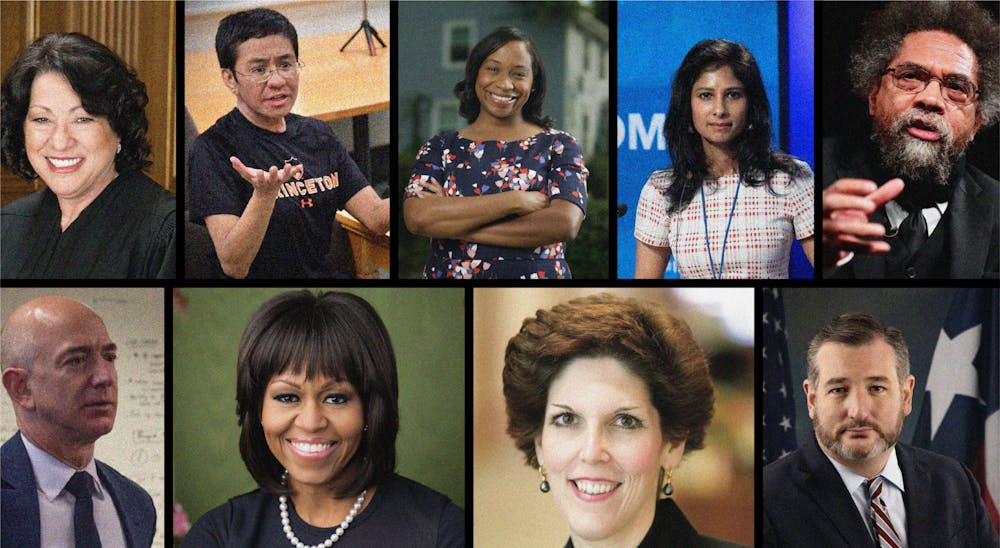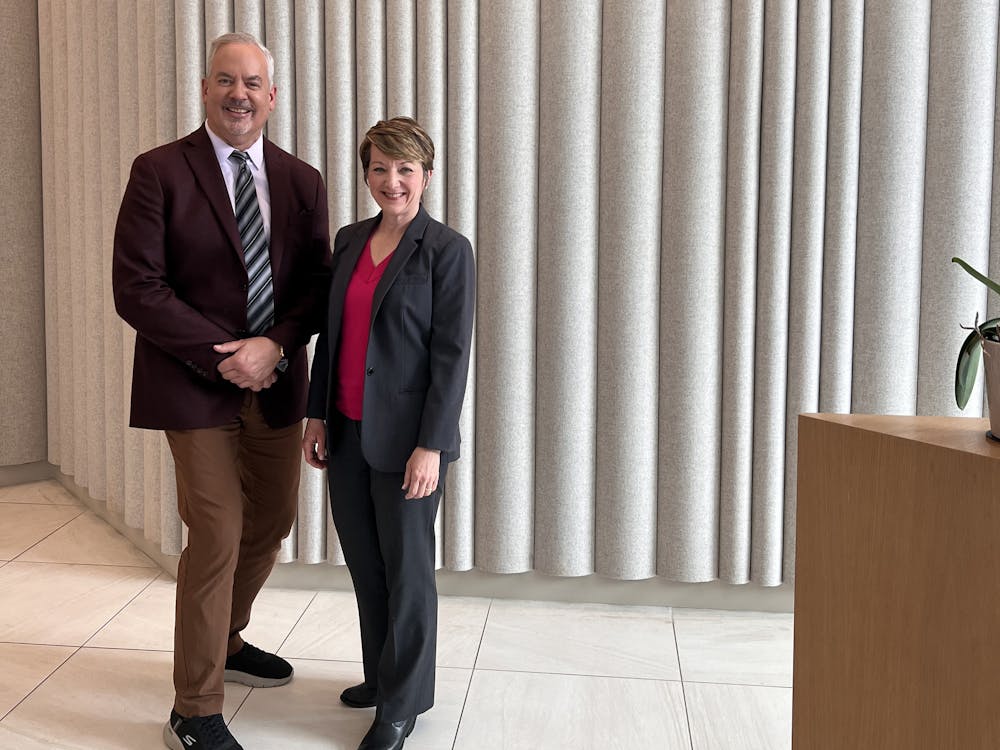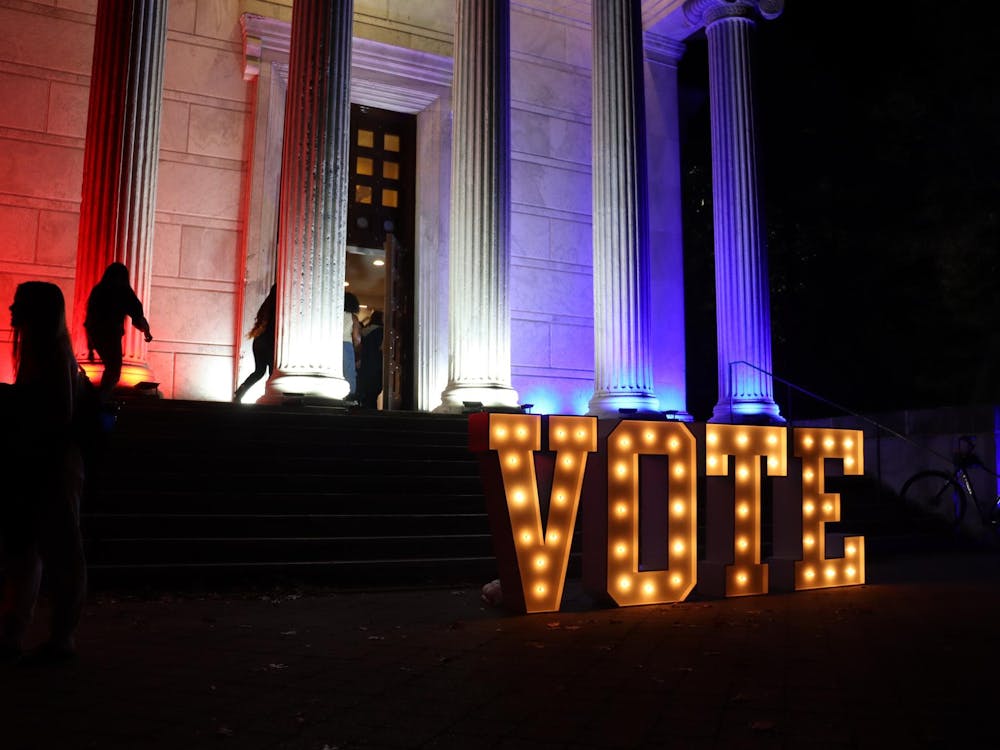To create The Daily Princetonian’s first-ever list of the most influential Princeton alumni in politics, a dozen staffers spent nearly a month collecting names, researching candidates, and deciding who would make the cut. Below, you’ll learn how our internal deliberations unfolded. You’ll also find demographic analysis about the final list.
Deliberations
All members of the 144th ‘Prince’ masthead were invited to join deliberations. The twelve editors who agreed to serve as panelists met on two occasions and corresponded extensively between meetings.
To begin, we submitted the names of any and all alumni we thought warranted consideration. We collectively generated more than 100 names. Our only requirements were that nominees be alumni and living; we did not limit our list to American domestic politics.
After initial deliberations, we unanimously agreed that 13 nominees should be included. Those alumni were Samuel Alito ’72, Andrea Campbell ’04, Ted Cruz ’92, Mike Gallagher ’06, Elena Kagan ’81, Mark Milley ’80, Michelle Obama ’85, Jared Polis ’96, Jerome Powell ’75, Maria Ressa ’86, Anthony Romero ’87, Terri Sewell ’86, and Sonia Sotomayor ’76.
We combed through the remaining names to identify those alumni who we agreed did not meet our criteria. This group included well-known politicians such as Ralph Nader ’55, Donald Rumsfeld ’54, and George Shultz ’42 — not because those alumni lacked political influence, but rather because they were most influential in the past.
We then worked through the remaining nominees, 16 of whom made it onto the final list.
Criteria

In determining who to include, we took the following criteria into consideration.
Authority. First and foremost, we weighed the responsibilities each candidate fulfills, and the extent to which they impact political decisions across the country and around the world. Holding national office or working in the executive branch aren’t the only ways to exercise authority; we considered alumni who work at federal, regional, state, and municipal levels, whether they were elected, appointed, or career public servants.
Public stature. Though millions of Twitter followers weren’t required to make the list, we considered whether a given candidate garners public attention. Did the nominee in question command a significant following? Are people on the street likely to recognize their name?
Representation. We aimed to assemble a diverse and representative list of political figures who attended the University. That means we didn’t just consider high-profile national figures, and we sought to avoid a list dominated by any one demographic. Though we gave particular thought to those alumni who hold elected office, a seat in Congress did not guarantee inclusion.

Demographic analysis
Both U.S. politics and older Princeton classes skew white and male, a reality apparent in our list. Of the 29 featured alumni, twenty are non-Hispanic white, while three are Hispanic or Latinx, one is Asian, four are Black or African American, and one is South Asian. Nine, roughly 31 percent, are women, while twenty are men.
Twenty-six of the alumni do not publicly identify as LGBTQ+. Two publicly identify as gay, and one publicly identifies as lesbian.
Fifteen alumni, slightly more than fifty percent, graduated in the 1980s. Four alumni (Jeff Bezos ’86, Eric Dreiband ’86, Maria Ressa ’86, and Terri Sewell ’86) hail from the Great Class of 1986 alone. Among other decades, five graduated in the 1970s, four in the ’90s, and five in the ’00s.
None of the featured alumni has a disability.
Credits
Our panel comprised editors from a broad range of sections: Ben Ball ’21 (Managing Editor), Celia Buchband ’22 (Copy), Lauren Fromkin ’24 (Prospect), José Pablo Fernández García ’23 (Prospect), Alex Gjaja ’23 (Features), Naomi Hess ’22 (News), Jon Ort ’21 (Editor-in-Chief), Elizabeth Parker ’21 (Managing Editor), Allan Shen ’23 (News), and Mollika Singh ’24 (Opinion). Guest panelist Morgan Smith ’21, who serves as President of the American Whig-Cliosophic Society, the center of political life at Princeton, joined deliberations.
Panelists wrote the featured alumni’s biographical entries. With oversight from Kenny Peng ’22, Ananya Grover ’24 and Brian Tieu ’23 designed the custom site that accompanies this project.








